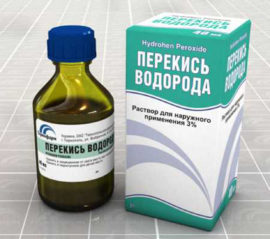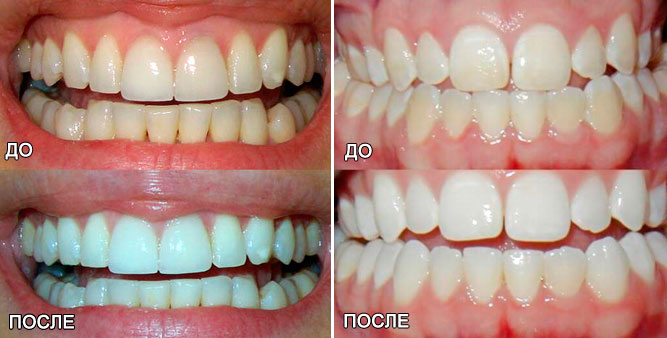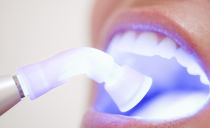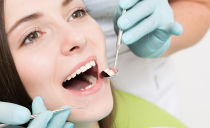Is it possible to rinse your mouth with hydrogen peroxide, how to dilute and rinse correctly
Hydrogen peroxide is a substance that is always at hand for a modern person, because it is used in medicine and at home, in clinics and at home. Recently, a lot of useful tips have appeared about the use of this drug for rinsing the oral cavity in order to disinfect, treat gums and whiten teeth. But any drug has contraindications and negative effects, so first you need to figure out whether it is possible to rinse your mouth with hydrogen peroxide and how to dilute it.
Content
Is it possible to rinse teeth and gums with hydrogen peroxide
Hydrogen peroxide can rinse your mouth without harm to your teeth and body, but only with a solution with a concentration of not more than 3%. When rinsing the mouth with this liquid, several effects appear simultaneously:
 Oral disinfection.
Oral disinfection.- Accelerating the healing of wounds and inflamed mucous membranes.
- Mucosal drying.
- Enamel whitening.
- Stop a little bleeding.
- Purification of the oral cavity from crusts, scabs, remnants of blood clots after injuries and operations.
This complex effect led to the widespread use of this tool in dentistry. Dentists prescribe a rinse with peroxide for the following diseases:
- Infections of the oral cavity - stomatitis, candidiasis.
- Inflammatory processes - gingivitis, periodontitis, periodontal disease.
- Bleeding gums.
- The presence of dark spots on the enamel.
- The presence of halitosis is halitosis.
The tool is used in the treatment of sore throat, with otitis media and a runny nose, and also when the lips become inflamed with cold sores. To do this, take a diluted solution, but it can only be used after consultation with your doctor.
Hydrogen Peroxide Rinse Cautions
To many, hydrogen peroxide seems to be the most harmless antiseptic, but it has many contraindications and requires caution when using. The drug can not be used:
- With severe bleeding gums in patients with periodontitis.
- In the presence of a large number of fillings.
- Patients with a thin layer of enamel and caries.
- During pregnancy and lactation, due to the possible consequences of rinsing the oral cavity with hydrogen peroxide, not only for the mother, but also for the baby.
- For the treatment of children under 12 years old. Children may not rinse properly and swallow the product. In addition, they are more sensitive to the unpleasant taste of the drug, which is why they may develop vomiting.
- During treatment with antibiotics.
Hydrogen peroxide should not be taken orally. A solution with a concentration of more than 3% is forbidden to use even for rinsing the oral cavity, it should be diluted.
Hydrogen peroxide must not only be used correctly, but also stored in a precautionary manner. A bottle of peroxide solution, perhydrol or hydroperit tablets - other pharmacological forms of this drug - should not be left in places accessible to children. Poisoning with this tool can be fatal. It is better to store the drug in a closed cabinet in a room where there is no strong increase in air temperature, otherwise it will lose its properties.
How to prepare a solution and rinse your mouth
Before rinsing your mouth with hydrogen peroxide, you need to dilute it. It is recommended to take a tablespoon of hydrogen peroxide in one glass of water. The solution should not be hot, but not cold. They rinse only after thoroughly brushing their teeth and rinsing the mouth with clean water, such manipulations will prevent undesirable chemical reactions between the components of the drug and toothpaste.
The peroxide solution cannot be kept in the oral cavity for too long; it is recommended that the procedure be carried out for no longer than 10 minutes. During this time, you must periodically spit the liquid and fill in a fresh portion in the mouth. After the procedure, the agent is spit out so that it does not remain in the oral cavity and does not enter the digestive system.
In case of violation of the rinsing rules, nausea and vomiting may occur, in severe cases, burns of the digestive organs may appear. If a strong burning sensation is felt during the procedure, especially if there are ulcers on the mucous membrane of the oral cavity, stop rinsing and rinse your mouth with clean water.
Can I use peroxide for teeth whitening
Use of hydrogen peroxide for whitening tooth enamel is possible only in the absence of contraindications. To make sure that the enamel layer is strong enough and not too thin, it is better to visit the dentist and consult with him about the possibility of using this tool.
Known methods of whitening:
- A mixture of hydrogen peroxide with soda is taken, sometimes it is diluted with eucalyptus oil. The gruel is applied to the toothbrush. After brushing your teeth, rinse your mouth. Food can be taken no earlier than 20 minutes after the procedure.
- Three drops of the drug drip onto toothpaste, it is recommended to take a paste to treat periodontal disease.
- If there is a limited spot on the enamel, you can clean it with a cotton swab dipped in hydrogen peroxide. But first you need to undergo an examination at the dentist, so as not to provoke the destruction of enamel.
- Instead of a pharmacy 3% solution, sometimes hydroperit tablets are taken and dissolved in pure water: 2 tablets per 100 ml.
Rinse your mouth with hydrogen peroxide
Halitosis can be caused by many dental and internal diseases. Hydrogen peroxide helps to get rid of an unpleasant odor, if the cause of its occurrence is associated with the state of the oral cavity. Rinsing the oral cavity with this tool for fluxes, periodontal disease, stomatitis, gingivitis helps to eliminate pathogenic microflora from the surface of the oral mucosa. And with it, the smell disappears, which is a consequence of the life of microbes.
If diseases of internal organs have become the cause of halitosis, hydrogen peroxide will not be able to effectively combat the oral odor. Disorders in the work of the kidneys and liver, diabetes mellitus provoke the appearance of various extraneous odors from the mouth, even with an admixture of chemicals: acetone, ammonia. It is also impossible to eliminate them by rinsing, a targeted comprehensive treatment is necessary.
With dysbiosis or infectious inflammation of the ENT organs, which also cause a putrid odor in the oral cavity, peroxide, if used correctly, can reduce the intensity of amber.
To rinse your mouth, hydrogen peroxide must be diluted with water (pre-boiled). Rinse your teeth and gums for 1-3 minutes in a row, after which the mouth is rinsed with clean water. Procedures are done three times a day for 3-5 days.
Pros and cons of using hydrogen peroxide to treat teeth and gums
Based on the available reviews and opinions of people who used a solution of hydrogen peroxide to rinse the mouth, this tool has these advantages and disadvantages:
| Benefits | disadvantages |
|---|---|
| Comprehensive therapeutic effect, a marked improvement in the condition of the oral cavity. | Possible consequences if used improperly. |
| The safety of rinsing the gums with hydrogen peroxide in compliance with the proportions. | Bad taste in the mouth during and after the procedure. |
| Availability in all pharmacies and low price. | Burning in the mouth during rinsing, especially in the presence of wounds. |
People who often rinse their teeth with this product recommend that after the procedure, rinse their mouth with an infusion of herbs with a pleasant smell. This allows you to reduce the feeling of an unpleasant taste and prevent a gag reflex. If you feel a burning sensation, you can dilute the solution to a lower concentration.
Hydrogen peroxide is a useful, generally available tool that helps fight the symptoms of various dental inflammations. Therefore, it is often prescribed in dentistry and otolaryngology.
For the dilution of peroxide in the correct proportions in each case, individual consultation with a polyclinic therapist or dentist is desirable. After using the product for any purpose, thoroughly rinse the oral cavity with boiled water.






